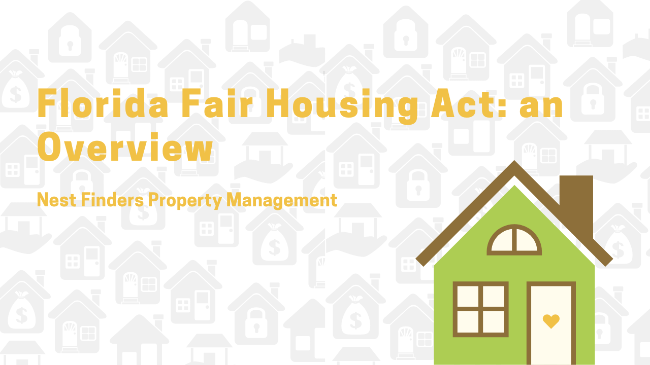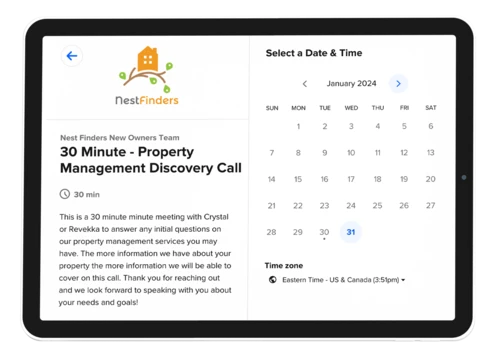As a landlord, you have a legal responsibility to treat your tenants equally, respectfully, and fairly per Landlord-Tenant Law. Before renting out your property, make sure you know what you legally can and can’t do per the Fair Housing Act (FHA).
There are an estimated 2.5 million people in the United States who are discriminated against every year. These estimates are according to a study by the U.S. Department of Housing and Urban Development.
Landlords can be liable to pay substantial fines if they are found guilty of having discriminated against their tenants. As a landlord, you could receive a $21,000 fine for a first-time violation and up to $105,194 for subsequent offences. In addition, you may also be required to pay for your tenant’s damages and court and attorney’s fees.
What Is the Fair Housing Act?
The Fair Housing Act seeks to protect tenants, home buyers, and lenders from being discriminated against based on certain classes. Fair Housing Law guarantees them the right to obtain housing regardless of the following protected classes.
Race
Color
Nationality
Religion
Sex
Disability
Familial status
Florida law also provides additional protections for pregnant individuals.
Initially, the Federal Fair Housing Act of 1968 only covered four protected classes. These are race, color, religion, and national origin. Sex only got added as a protected class 6 years later. In 1988, two more classes were added – disability and familial status, bringing the total number of federally protected classes to 7.
What Actions Are Discriminatory?
According to the Florida Commission on Human Rights, the following actions may be considered discriminatory.
Refusing to rent out your property based on a prospective tenant’s race, color, religion, or any other protected class.
Requiring a larger security deposit for Black or Hispanic tenants.
Falsely denying a unit isn’t available because a prospective tenant is disabled, has children, or belongs to another protected class.
Intimidating, coercing, or threatening a tenant into foregoing their fair housing rights.
Refusing to provide your disabled tenant with reasonable accommodations.
Refusing to make reasonable modifications to the unit that a disabled tenant may request.
Declining a tenant for any reason other than the potential tenant not meeting your tenant selection criteria.
Evicting a tenant for being a hoarder due to hoarding being categorized as a mental disability.
Treating tenants differently. For example, responding to white tenants' maintenance requests more quickly than you do to Black tenants’ requests.
What are the Fair Housing Act Exemptions?
There are a few very limited exceptions to the Fair Housing Act. They are as follows.
The owner occupies one of their properties that have four or fewer units.
Single-family homes rented out by the owner who owns three or fewer units.
Homes specifically designed for elderly individuals over the age of 55.
Homes operated by private or religious organizations that limit occupancy to members.
Who Enforces the Fair Housing Act in Florida?
The Florida Commission on Human Relations (FCHR) is the state agency tasked with investigating housing discrimination complaints in the state. Its mandate is spelled out under the Florida Housing Act, Chapter 760.
How Can Landlords Avoid Housing Discrimination Accusations?
Violating the Fair Housing Act comes with heavy financial and legal repercussions. To be a successful landlord, you’ll need to ensure your conduct and processes abide by the Fair Housing Act.
The following are tips to help you stay compliant.
Have a Consistent Tenant Screening Process.
Screen tenants the same way every time. Don’t make decisions based on your gut feeling. You’ll want to have a well-defined process that treats every tenant fairly. Avoid asking potential tenants the following questions.
Where were you born?
Which church do you go to?
How many children do you have?
Do you have a service dog?
Do you get asked out a lot?
Can you afford the rent without a husband to help you?
Are you married or divorced?
Require the Same Information From All Applicants.
Make sure you require the same documents from all tenants who submit rental applications to you. It’s common for landlords to ask for the following documents during the tenant screening process.
Employment contracts
Court-ordered settlements
Pay stubs
W-2 tax forms
Bank statements
If you require these from one tenant, don’t make the mistake of requiring more or less from another tenant. The Fair Housing Act requires that landlords treat all their tenants equally.
Create Proper Rental Ads.
As a landlord knowing how to market your rental property effectively is important! When creating the ad, it’s crucial that you avoid using language that can be interpreted as discriminatory.
The following are examples of phrases you’ll want to steer clear of.
An Asian Family Home
A Home for Christians
Ideal for a Female Renter
Perfect Neighborhood for Singles
Not Family-Friendly
No Children Welcome
Hispanic Residence
Not Suitable for Seniors
What’s more, discrimination isn’t limited to words only. Using certain symbols, images, and visuals can indicate that a landlord prefers certain groups.
Examples of discriminative imagery include:
Gendered symbols
National or politically affiliated flags
Religious images such as a Cross
Bottom Line
We hope you enjoyed reading this guide to the Florida Fair Housing Act! If you need expert help in keeping your rental property compliant and profitable, Nest Finders Property Management can help. We’re proud to be Jacksonville’s leading property management company!
Get in touch to learn more about our comprehensive services!
Disclaimer: This blog should not be used as a substitute for legal advice from a licensed attorney in your state. Laws change, and this post might not be updated at the time of your reading. Please contact us for any questions you have in regard to this content or any other aspect of your property management needs.



